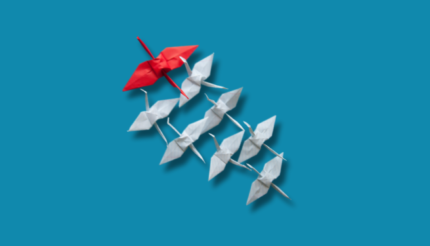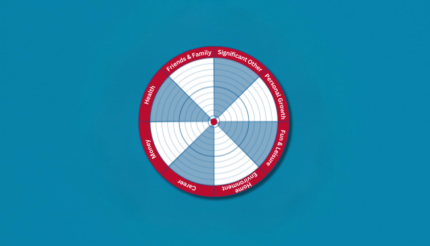People can change their lives dramatically by changing their thoughts and the way they approach life. If you have an optimistic way of seeing the world and take action, you’re more likely to change your life for good. It’s all about mindset and how you see the world working around you. There’s a point of power where you gain clarity about how things work and what you can do to influence outcomes.
Clarity – The Point Of Power
Before going into why the point of power matters, let’s define power and power situations.
You’re powerful when you get the results you want in life and move in the right direction in business and in personal relationships. If you want to be in a power situation, you need to get away from the position of confusion. You need to bring clarity and see the truth about the factors that influence your activities and outcomes.
To gain clarity, you need to get rid of the words “I know.”
Every time someone shares a message with you, “I know” cancels your ability to learn something new. So, instead of saying those two words, change your mindset using the phrase “Isn’t that interesting?”
The other thing you need to work on to gain more clarity is flexibility. Most of the time in real-life situations, you need to go beyond the “right” and “wrong” labels. Beyond moral, everyday life is made of instances where you need to be flexible and willing to hear other people’s points of view.
This flexibility means you become aware that you can shift when things change. It’s not about agreeing or disagreeing with a situation, but about remaining capable of learning new things and understanding other people’s opinions.
Now that you know what the point of power is, let’s see what’s below and above.
Below The Point Of Power
Below clarity, we have the killers of human success: Blame, Excuse, and Denial (BED).
1. Denial
People who are in denial don’t even acknowledge their situation exists. They can be in denial about finances, health, relationships, or any other problem they have, with significant long-term consequences. That’s because if they’re not willing to admit issues, no one can fix their problems.
How does denial work? At some level, you know that your problem is real, but denial creates a safe space where you don’t have to do anything about it. You get there gradually, so it’s hard even to realise the slide – no one wakes up one day 3 stones heavier. It’s a gradual thing, that becomes more powerful every time you don’t want to deal with your problem.
If you put things in the denial box, you need to pull them out and deal with them, otherwise, they’ll come back and hurt you at some point. It’s easy to see denial in others, not so easy to see it yourself.
2. Excuse
We all find excuses not to do what we don’t want to do. The secret is to identify your top excuses and learn to say YES instead of finding reasons to say NO.
Remember that most excuses we come up with are meant to keep us safe. Having to make a change and do things differently comes with risk, and excuses are our way to protect ourselves inside our comfort zone.
You want to pick one or two areas where you use excuses often and fix your habit. It’s not about being perfect, but recognising the pattern and making a change.
3. Blame
Blame is the element that destroys relationships and trust, mostly when blaming other people for the situations in your life. Blame comes in two forms:
- Blame for specific situations when you say someone is responsible for where you find yourself. The good news is, it’s easy to stop by learning to admit “I made a mistake, I need to fix it.”
- Globalised blame, when you say things like “I would do better, but I grew up in an underprivileged neighbourhood.” It’s more difficult to counter because the factors you blame are impossible to control.
The problem when you find yourself below the point of power is that you have a mindset that doesn’t allow you to change. You can’t upgrade your life because it’s someone else’s fault. So, what can you do?
Admit that you find yourself in a situation that involves denial, excuses, or blame, and work to fix things – it takes courage and strength. You need to learn to own your mistakes and accept them as part of the journey. And you can do it by stepping up above the point of power.
Above The Point Of Power
When you reach clarity, you start working towards your goals. Above clarity, we have responsibility, accountability, and ownership. And these three elements enable you to grow.
1. Responsibility
People who are responsible are always ready to do hard work and complete their jobs on time. They take responsibility for what’s going on in the world and are aware that people receive what they offer in life.
It’s the first level above the point of power, in which you start to perform. You take responsibility for your finances, health, and relationships. As a consequence, you know that you can change whatever isn’t working correctly.
2. Accountability
When you become accountable, you do more than get the work done; you care about results, so you make sure you do a good job.
Accountable people are proactive. They don’t stop at doing what’s needed. Instead, they make things better, focus on growth and help people around them grow too.
If you need help to accept accountability, you can hire people to hold you accountable, such as coaches or trainers. However, at some point, you need to learn to hold yourself accountable and hold other people to account as well.
3. Ownership
Ownership is the highest level above the point of power. Here, you know where you stand and know that the only person who can change things in your life is you.
When you’re willing to take ownership for what’s going to happen in your life, there will be no one to blame and no excuses.
The secret is to become aware that only you can decide to take ownership of your life. Otherwise, success isn’t going to happen. The world doesn’t owe us education, a living, or a job. The world owes you one thing: opportunity, and it’s there, should you choose to be responsible, be accountable and take ownership.
What’s Next?
In conjunction with being flexible, and not uttering the phrase “I know”, you need to work and build relationships with people who take ownership.
You’ll notice that many people out there succeed and fail, then succeed and fail again, and so on. Many times, they fail because sometime during the journey, they fall below that point of power and lose clarity.
We all fall sometimes below clarity; the difference comes from how fast you get out of that situation and play above the point. Learn to set high standards for yourself and hold yourself at a higher level than the people around you.
You need to think differently and take responsibility, accountability, and ownership every day to be successful. You’re in charge, and you get to decide what you do, where you go, and what direction you take.
You are where you’ve chosen to be. You have made decisions that have led you to the point in your life where you’re at right now.
Your mantra should be “I’m going to change.” If you decide to change, you’ll see where you need to make a shift to become successful.
If you’d like to learn how to accept ownership and take responsibility, to own what has happened in your life and work to change what you don’t like, sign up for a free coaching session where I’ll explain how to help transform your mindset and take control.





